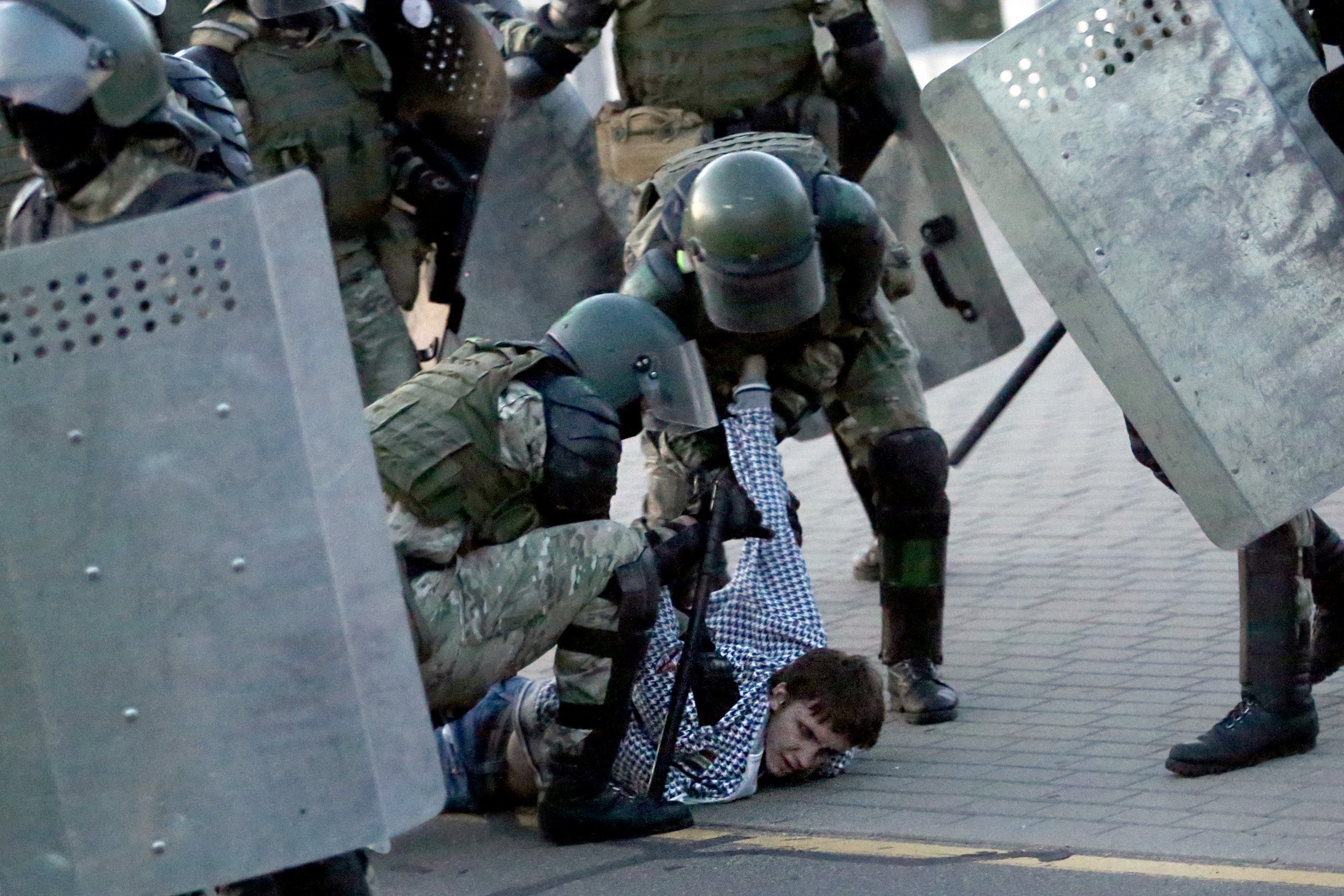EU countries must not prioritise national interests over Belarus’s struggle for democracy
The international community must use what leverage they have, whether political or financial, to pressure the Lukashenko government, writes Ales Bialiatski

Last week, on 17 September, armed men charged into Marfa Rabkova’s apartment in Minsk, seizing her computer, whatever cash they could find and taking her to the Akrestsina detention centre. Marfa already knew it well.
Marfa coordinates volunteers for Viasna (which means “spring” in Belarusian), the human rights organisation I founded. She knew the detention centre because for over a month she had coordinated volunteers to bring food and warm clothing to the thousands of Belarusians detained for peacefully protesting the presidential election allegedly rigged by Alexander Lukashenko on 9 August. Even more importantly, she had been working with the same volunteers to document the beatings, denial of medical treatment and rapes of detained protesters that have taken place there. She was officially detained for financing a mass protest. Amnesty International has declared her a prisoner of conscience - their term for a political prisoner.
The Belarusian authorities consider people like Marfa a threat. Her work with volunteer election observers to document election falsifications during the presidential election was a threat. Her work documenting abuses against protesters that could be used for an EU investigation was a threat. But on an even more basic level, her work supporting detainees was a threat. Lukashenko does not want a society of open solidarity, he wants one of fragmented fear.
The European Parliament has emphatically endorsed EU sanctions against 40 officials in Lukashenko’s government. But now these overdue sanctions are being even further delayed by Cyprus, which will only support sanctioning Belarus’s government if parallel action is taken against Turkey. The dispute surrounds claims that Turkey violated Greece and Cyprus’s sovereignty by drilling for gas in their territorial waters. These are important matters, clearly. But blocking already delayed sanctions is not how you show solidarity. As a former political prisoner who spent three years in prison, I can say that this is not what Marfa and the thousands like her deserve.
The international community, including Cyprus, must use what leverage they have, whether political or financial, to pressure the Lukashenko government. Countries must together condemn the heavy-handed tactics by the security forces and support the protesters’ demands that elections are free and fair. We need international support more than ever to help build a truly democratic future for our country.
Civil society has played a crucial role in promoting freedom and holding power to account in Belarus, but state repression has forced us to work underground. The Belarusian government has relied on a range of repressive laws and tactics to silence dissent. Organisations promoting human rights have been subjected to onerous tax audits or outrageous rent hikes. Demonstrations, even a one-person picket, requires permission which is rarely granted.
Human rights groups like Viasna remain in the authorities’ crosshairs around this year’s elections. In the build-up to the vote, hundreds of activists were arrested simply because they monitored peaceful demonstrations - a trend that has continued.
My work with the Viasna has come at a high personal cost. In 2003, the Supreme Court arbitrarily stripped the centre of its registration, and we have operated in legal limbo ever since. Harassment and threats are daily realities for all of our volunteers.
I was sentenced to almost four years in prison in 2011 on trumped up tax evasion charges, and spent three years behind bars. The case stemmed from how Viasna had to use my personal bank accounts in Poland and Lithuania to fund our work. The irony, of course, was that the Belarusian government had banned Viasna from opening our accounts in our home country in the first place.
During that time my life was determined by the whims of my jailers. Letters from my wife were kept from me. Food and clothes sent by my family were held from me for a year as officials tried to force me to admit wrong doing, but I refused. But even if the letters didn’t always make it through, I knew people supported me. In that time some 40,000 people wrote to me including former dissident and Czech president Václav Havel letting me know they were with me. That is what solidarity looks like.
I have fought for freedom in Belarus for decades, but the current situation is different. For the first time, ordinary people are starting to see through the lies of the regime, and are willing to act to bring about change. Even with more people like Marfa being arrested and imprisoned, there is now the potential to change the country and turn it into a true democracy. But we cannot do it alone. In the EU there must be an atmosphere of open solidarity, not fragmentation.
Ales Bialiatski is founder of the Viasna Human Rights Centre in Belarus, recipient of various human rights awards, and a Nobel Peace Prize nominee.

Join our commenting forum
Join thought-provoking conversations, follow other Independent readers and see their replies
Comments